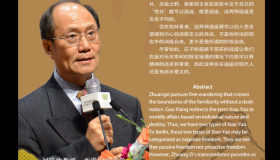Partial Identification of Principal Stratum Treatment Effects
Speaker: Professor Jisong Wu
Time: 10:30-12:00,
Date: July 15th, 2016 (Friday)
Venue: Room 502, Dao Yuan Building
Biography:
Professor Jisong Wu was born in Hunan. He moved to Shenzhen at the age of 5 and grew up in Shenzhen. He received undergraduate education at the University of Science and Technology of China, and PhD in economics from Vanderbilt University. Now he is an assistant professor at the Indiana University at Indianapolis (IUPUI).
Abstract:
Selection after randomization renders simple comparison procedures between the treated and control group outcomes commonly used to evaluate treatment effects invalid. Without strong assumptions on the selection procedure, policy parameters including average treatment effects and quantile treatment effects are only partially identified. In this paper, we explore different types of information to tighten existing bounds on treatment effects for the always selected group or principal stratum. The types of information we consider include: (i) baseline covariates; (ii) dependence structure between the counterfactual outcome and the selection indicator characterized by copula bounds; (iii) the presence of an instrumental variable or monotone instrumental variable in a threshold-crossing model for selection; and combinations of (i), (ii), and (iii). Numerical examples are provided to illustrate the power of each type of additional information in tightening the bounds. An empirical application to HIV vaccine trial data is also provided.







